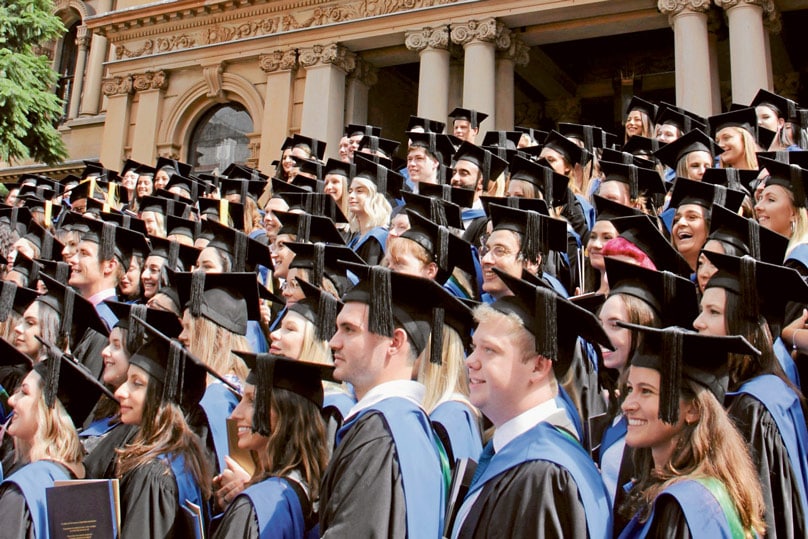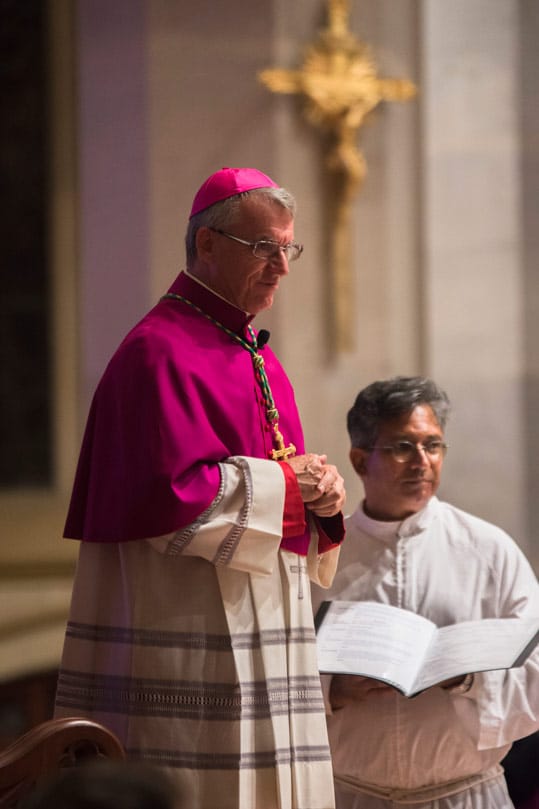
Catholics might have heard about an event happening in two years time in the Catholic Church in Australia called the Plenary Council 2020. They might be under the impression it’s just another meeting of bishops to discuss various matters—something that will not greatly affect them or other ordinary Catholics.
Well, it’s not. It’s actually a meeting of the entire Church in Australia, meaning everyone—bishops, clergy, religious and lay faithful—with the intention of shaping the future course of the Catholic Church in this country. And while if won’t affect matters of doctrine, it will have legislative power to mould practices within the Australian Catholic Church. So, as a Catholic, the outcome of the meeting will most definitely affect you.
In theory, everyone will be allowed a voice. The word “Plenary” simply mans “entire” or “open”.
Through Plenary 2020, the Catholic Church in Australia will determine its structures and strategies for the future. And this of course will affect its mission of evangelisation—how it will spread the Good News of Jesus Christ in a culture increasingly adverse to Christian values.
There really couldn’t be a more pressing matter of consideration for Catholics in Australia at this point in time. And this is a theme that Pope Francis has emphasised—how do we evangelise in a culture moving rapidly away from the Christian world view?
“The way in which we locate ourselves in history has changed,” the Pope has written. “Things we thought would never happen, or that we never thought we would see, we are experiencing now, and we dare not even imagine the future. That which appeared normal to us – family, the Church, society and the world – will probably no longer seem that way. We cannot simply wait for what we are experiencing to pass, under the illusion that things will return to being how they were before.”
The recent redefinition of marriage in Australia is a case in point. The culture we now live in—from a moral perspective—would be unrecognisable to someone living in 1937, when the Catholic Church in Australia held its last Plenary Council. Clearly, our current approach to explaining to the wider community the hope we have in us as Catholics is not working.

And the Plenary Council in 2020—as the highest form of communion possible between local churches and dioceses within a country—will actually determine Church legislation in Australia.
According to Daniel Ang, a member of the Plenary Council Executive Committee, “Australian bishops, along with religious and lay delegates, will discuss, debate and develop legislation that will shape the Church for generations to come.”
So this is no mere talk-fest. It will have real impact.
How will the Plenary Council unfold? On Pentecost Sunday—20 May—this year, the Plenary will be officially launched, kicking-off 2018 as a “Year of Listening”. Following that, local “Animators” will be trained to facilitate “Open Dialogue and Listening Sessions” within their local parishes and faith communities. These sessions will be guided according to broad themes. Participants are invited to “Listen to God by listening to one another.”
During 2019—a “Year of Discerning”—there will be a “Discernment and Re-Listening” period and summary reports from the local listening and dialogue sessions will be written up to form the agenda for the actual Plenary Council.
And finally, 2020, the “Year of Proposing,” will see the first of two sessions of the Plenary Council take place in October in either Alice Springs, Darwin or Adelaide. The second session will take place in May 2021 in a metropolitan city on the Eastern seaboard, most likely Sydney.
During the second Plenary session the Australian bishops will vote on proposed legislation.
The idea behind the process is that the faith of the faithful—the “sensus fidelium”—will be discerned and then acted upon by the bishops.
This is a way of the Church determining its course of action during a particular moment in time—discerning the “signs of the times” under the guidance of the Holy Spirit. Indeed, the scriptural theme of the Plenary is “Listen to what the Spirit is saying.” (Rev. 2:7)
Overseeing the whole process is the National Facilitation Team and the Executive Committee comprised of individuals from around the country.
There is also a Bishop’s Commission chaired by Archbishop Mark Coleridge of the Brisbane Archdiocese. The other bishops on the Commission are Archbishop Timothy Costelloe SDB from the Perth Archdiocese, Bishop Vincent Long Van Nguyen OFMConv from the Parramatta Diocese, Bishop Michael Kennedy of the Armidale Diocese and Bishop Antoine-Charbel Tarabay OLM, the Maronite Eparch of Australia.
Despite its rather mundane title, Plenary Council 2020 is in fact an exciting and pivotal moment. It is an opportunity to determine how as Catholics we might re-ignite our Church in Australia and also evangelise the culture around us. How might we recapture that zeal for the living God that enflamed the Apostles and the early Christians, and then inspire others with that flame of faith?
It is an opportunity not just to devise new strategies to evangelise the culture around us, but also to engage in the New Evangelisation—that is, evangelising lapsed Catholics.
This is a mammoth task. As evidenced by the outcome of the same-sex marriage vote, and the decline in Mass attendance over recent decades, many Catholics have been successfully evangelised by the secular culture around them.
Yet with God nothing is impossible. After all, we believe in a God-man who rose from the dead. Like the small band of Apostles huddled in the Upper Room on Pentecost, we always have a reason for hope because we have the Holy Spirit, the Paraclete.
It is to be hoped that Australian Catholics take up the challenge of the Plenary Council 2020 by participating in it in a prayerful and hopeful way, recognising its import for the future of our Church in this country.
For more information about the Plenary Council 2020: plenarycouncil.catholic.org.au
